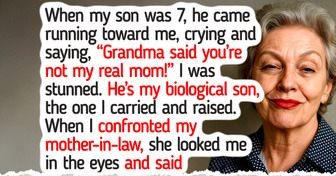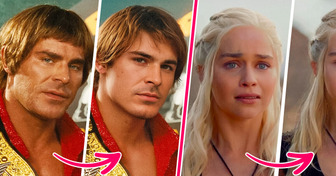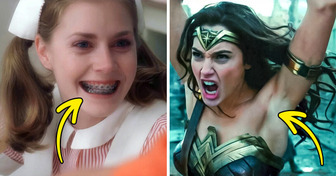15 Photos That Can’t Be Easily Explained
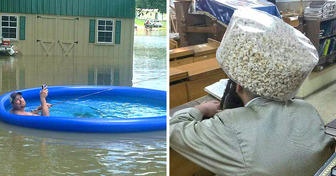
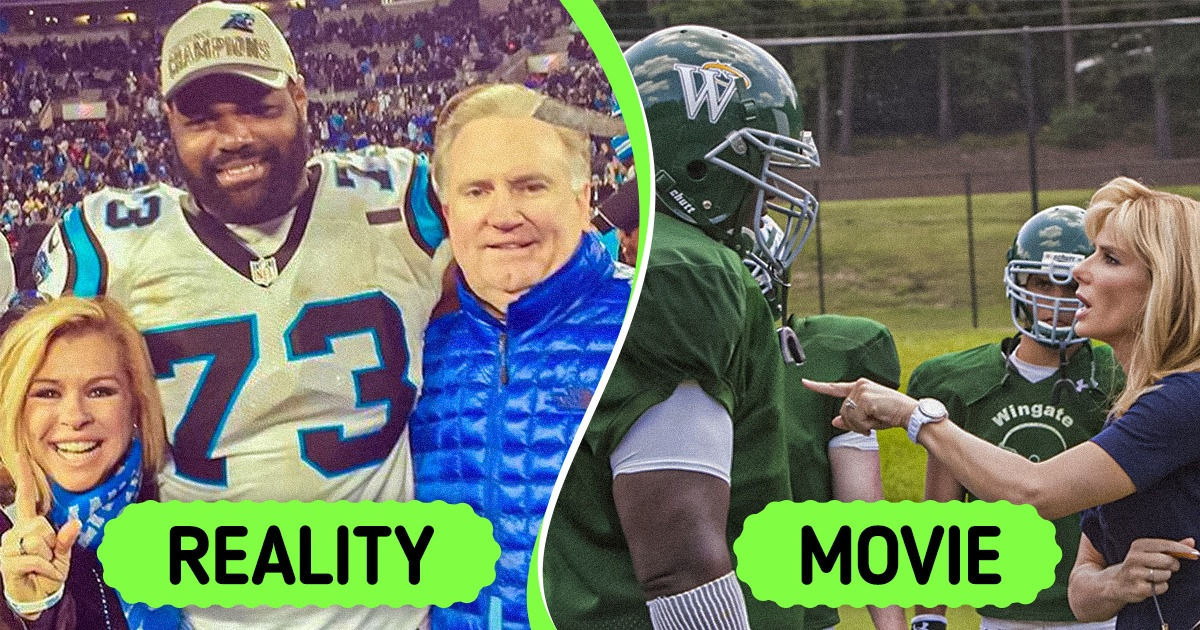
From having nothing to being a Super Bowl champion. One sibling out of twelve, a poor family, an absentee father and a troubled mother; in other words, a complicated life. This is the story of Michael Oher, who inspired the creation of the movie The Blind Side, a boy who had no place to call home and was taken in by a wealthy and privileged family from his high school. It was enough to see him just once on the playing field to recognize that his outlet and hope was sports. However, the road to success was a rocky one.
In Now I’ve Seen Everything we commemorate his story to remember the lesson about the importance of effort, solidarity, and empathy that he leaves us.
In 2002, little was known in Memphis about the 16-year-old boy, who was virtually homeless and sleeping on the floor of whoever gave him shelter for a few days. One of those caring people was Tony Henderson, known simply as “Big Tony,” who requested that Michael be accepted to Briarcrest Christian School, thinking he would make a great addition to the basketball team.
However, the academic record of “Big Mike” (as Michael was nicknamed) could not have been more discouraging: he had an IQ of 80, and had already been to 11 different public schools. In addition, for more than a year he had not attended any school, had to repeat two grades and had so many absences that the only explanation for him moving on to the next grade was that his teachers were just trying to get rid of him and make him the problem of some other institution.
Eventually, the people of Briarcrest learned that Big Mike had 11 other siblings, his father had passed away, and that his mother was absent, which is why Michael spent time in foster care. Initially, the principal denied him entrance to the institution, but thanks to pressure from the soccer coach and after realizing that this was Michael’s only chance to continue studying, he accepted him on the condition that he would not participate in any extracurricular activities, not even choir, until he demonstrated that he was capable of improving academically.
The problem was that Michael had had such a poor school and life experience that he seemed to have suddenly materialized as a 16-year-old. He hadn’t heard of a verb or noun, didn’t talk much, and barely shook hands with the principal. So, a few weeks after his admission, several teachers suggested that he should leave.
Collins Tuohy, a sophomore at Briarcrest, told her parents that she had seen a noticeably large black boy at school who always wore the same clothes. One day, her father, Sean, met Michael while they were watching basketball practice. After that he asked to open a permanent account for him at the school cafeteria, something he used to do for the poorer kids who studied there.
Sean Tuohy was the epitome of American success, a prosperous man who owned 60+ restaurants. He had a hobby of visiting the institution and acting as a sort of consultant to the coaches of the sports teams. He even contributed money to the school fund to pay tuition for some students.
In school, Michael was able to improve his grades a bit when his teachers realized that it was more convenient for him to take tests orally rather than in writing. So, at the end of his sophomore year, he joined the basketball team, then the track team, and, in his junior year, he finally made the soccer field.
During one of his first practices, Michael proved that he was more than just a big guy who could intimidate the opposing team because of his size. The boy weighed about 158 kilograms and was 1.93 meters tall, so the others thought that would make him slow when running. However, they were wrong.
As Michael worked to improve his soccer skills, he used to spend nights with different families, including the Tuohys. One day, after a training session, Leigh offered to take him wherever he wanted to go, but after seeing the conditions he was living in, she decided to take him home for good. This meant something important for Michael’s life, as it was the first time he would have his own bed. He became the third son of a wealthy family, and even had a good relationship with the Tuohy brothers.
Big Mike started out playing defensive tackle, but his main problem on the field was that he didn’t seem to understand very well what was going on around him. He was passive and had no intention of assaulting anyone. However, word got out that he was an impassable wall, which is why several college soccer coaches wanted him on their teams. He later became a left tackle, one of the most valuable positions in the sport.
No matter how good he was at sports, Michael would never be able to play in the NFL if he didn’t get a better GPA that would get him into a college. Leigh Anne decided to take matters into her own hands and talked to Michael’s teachers to ask them to tell her what he needed to do to bring his grades up. No matter what, he would do it.
Supported by Leigh and a tutor who tutored him five days a week, Michael went from having one of the lowest averages to being on the honor roll. Even so, his first-year grades were so low that he failed to achieve the final average he needed.
Then it was time to move on to a plan B. Sean suggested courses offered on the internet by a university. These had the power to replace a full semester’s grades with a new assessment that would take a few weeks. Thus, Michael was able to eliminate the F’s from his classes and replace them with wonderful A’s.
In May 2005, Big Mike had an emotional graduation ceremony accompanied by the people who had helped him get there: his new family, his tutor, his coach, the school principal, and the man who had brought him to Briarcrest in the first place, Big Tony.
Although Michael still had some difficulty getting into college, he was eventually accepted to Ole Miss, where his IQ was reevaluated and found to be up 20 to 30 points. He was also on the honor roll several times, and in 2009 graduated with a bachelor’s degree in Criminal Justice.
After his college soccer stint, he signed a five-year, $13.8 million contract with the Baltimore Ravens, a team with which he was crowned champion in 2013 by winning Super Bowl XLVII. Subsequently, he was also part of the Tennessee Titans and Carolina Panthers. Although he is not officially retired, since 2017 he has not played in the NFL. He now resides quietly in Tennessee and continues to live with the Tuohy’s.
Michael Oher’s story is an example that, with perseverance and support, dreams that might seem impossible can be achieved.
Have you seen the movie based on his story? What lesson did you learn? Do you know of other examples of lives like Michael’s that deserve to be shared and commemorated?




